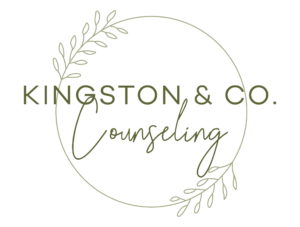High-functioning depression is often overlooked because, on the surface, everything appears fine. People who experience it may hold steady jobs, maintain relationships, and fulfill responsibilities—yet behind the scenes, they are emotionally exhausted, disconnected, and silently suffering.
At Kingston & Co Counseling, we see firsthand how this hidden form of depression affects clients from all walks of life. In this post, we’ll explore what high-functioning depression looks like, how it differs from more visible forms of depression, and how therapy can help you move toward healing.
What Is High-Functioning Depression?
While not a formal clinical diagnosis, “high-functioning depression” often describes individuals who experience symptoms of depression but continue to perform day-to-day tasks. This term is frequently associated with Persistent Depressive Disorder (PDD), a chronic form of depression that lasts for two years or longer, often with less severe—but consistent—symptoms.
Many people with high-functioning depression:
- Appear outwardly successful or “put together”
- Meet work, family, and social obligations
- Downplay or ignore their own emotional needs
- Struggle with persistent low mood or hopelessness internally
Because these symptoms are hidden behind achievement or routine, they often go unnoticed—even by the person experiencing them.
Common Signs of High-Functioning Depression
Recognizing high-functioning depression can be tricky, especially when societal messages praise productivity and emotional restraint. If you recognize the following signs in yourself or someone you love, it may be time to seek support:
- Chronic fatigue or low energy, despite adequate sleep
- Perfectionism or fear of failure, often leading to burnout
- Difficulty experiencing joy or fulfillment, even during positive moments
- Persistent negative self-talk or internal criticism
- Feeling emotionally numb, disconnected, or “on autopilot”
- Irritability or frequent frustration
- Overworking as a distraction from emotional distress
- Withdrawing socially while still maintaining surface-level contact
These signs are often minimized because individuals believe “it’s not that bad” or they “should be grateful,” but ignoring them can lead to worsening symptoms over time.
How Therapy Can Help
Therapy provides a safe, supportive space to unpack what’s beneath the surface. At Kingston & Co Counseling, our Individual Therapy services are tailored to help clients:
- Understand the root causes of their emotional fatigue
- Learn healthier coping strategies for managing stress and emotions
- Reconnect with joy, purpose, and personal values
- Set boundaries and reduce burnout
High-functioning depression often thrives in silence. Therapy helps break that silence by creating a space where vulnerability is not only allowed—but encouraged.
Why Many Don’t Seek Help
There are several reasons people with high-functioning depression avoid therapy:
- They believe their struggles aren’t “serious enough”
- They fear being judged or appearing weak
- They worry therapy won’t help or don’t know where to begin
Whether you’re reaching out for yourself or someone else, know that starting therapy is a sign of strength, not weakness.
You Don’t Have to Carry It Alone
High-functioning depression can make you feel like you’re just “getting by” rather than truly living. You deserve more than that. At Kingston & Co Counseling, our compassionate team is here to help you move from surviving to thriving.
If you’re ready to take the first step, contact us to schedule a consultation, or explore our full range of Therapy Services to find the support that fits your needs.
Conclusion
Just because you’re functioning doesn’t mean you’re okay. Recognizing the signs of high-functioning depression is the first step toward meaningful change. With the right support, it’s possible to rediscover clarity, connection, and joy in your life.
If you or someone you love may be struggling, don’t wait. Help is available—and healing is possible.







